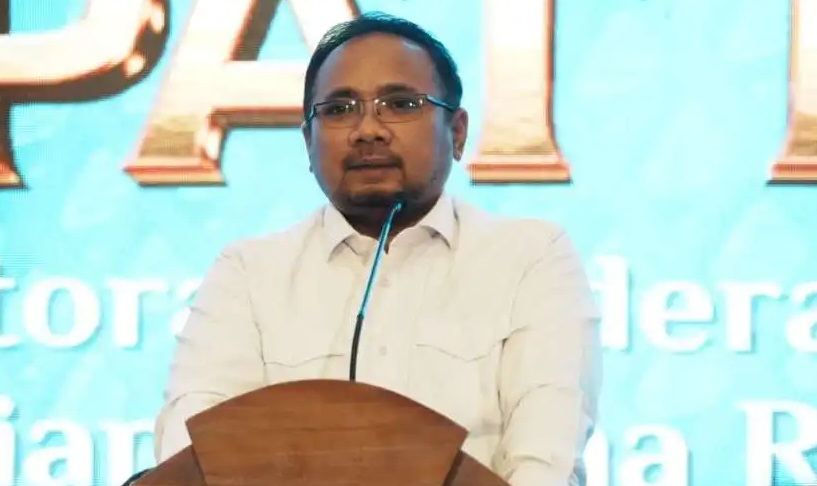Minority leaders hail Indonesia’s inclusive policy
Islamic groups and leaders of religious minorities in Indonesia have welcomed a government plan to offer services of the Religious Affairs Office to people of all faiths in the Muslim-majority nation.
Mar 10, 2024

JAKARTA: Islamic groups and leaders of religious minorities in Indonesia have welcomed a government plan to offer services of the Religious Affairs Office to people of all faiths in the Muslim-majority nation.
The plan, presented by Religious Affairs Minister Yaqut Cholil Qoumas on February 26, offers premises of the Religious Affairs Office for conducting weddings of religious groups that do not have places of worship.
It also allows non-Muslims to register their marriages with the office.
“So far, our non-Muslim brothers and sisters have registered their marriages in the civil registry. We want to provide them convenience,” said Qoumas.
The minister, a member of the Nahdlatul Ulama, the country’s biggest moderate Muslim organisation, added that his ministry is examining the plan to overcome possible hurdles.
The Religious Affairs Office is under the Directorate General of Islamic Community Guidance and is spread across regencies and cities in the country.
“It is the duty of Muslims in the country to protect brothers and sisters from the minority community,” Quomas observed.
It should not be “the other way around,” he insisted.
Fr Agustinus Heri Wibowo, executive secretary of the Bishops’ Conference of Indonesia’s ecumenical and interreligious affairs, welcomed the proposal.
“The government is obliged to provide services to all citizens without discrimination,” the priest observed. Before finalising the plan, the ministry should consult representatives of religious councils, Wibowo demanded.
It is necessary so that its implementation “does not create new problems,” Wibowo said on Feb 27.
When it comes to wedding venues, each religion has its internal norms, which do not need to be regulated by the state, he added.
Rev Henrek Lokra, executive secretary of the Justice and Peace Commission at the Union of Churches in Indonesia, a Protestant group, asked the government to study the policies of each religion before finalising the plan.
Suresh Kumar, head of the Parisada Hindu Dharma Indonesia, a Hindu group, hailed the ministry’s move.
The Religious Affairs Office can solve many problems at the micro level, Kumar said.
Hidayat Nur Wahid, a lawmaker from the conservative Islamic Prosperous Justice Party, said that “historical factors” should be studied before implementing the plan.
Moderate Islamic groups like Nahdlatul Ulama and Muhammadiyah have backed the plan.
Of Indonesia’s 279 million people, about 87.2 per cent are Muslims, about 7 per cent are Protestants, 2.9 per cent Catholics, and 1.7 per cent Hindus.
Other religions include Buddhism, Confucianism, Gafatar, Judaism, traditional Indigenous religions, and other Christian denominations. --ucanews.com







Total Comments:0